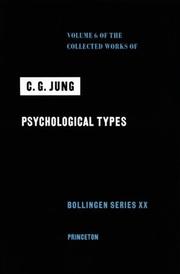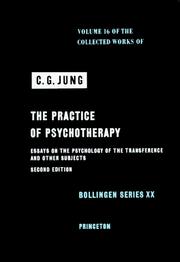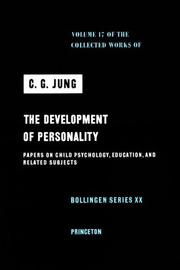| Listing 1 - 4 of 4 |
Sort by
|
Book
ISBN: 1469614510 9781469614519 9781469611655 1469611651 9781469611648 1469611643 9798890842947 9798890842930 Year: 2014 Publisher: Chapel Hill
Abstract | Keywords | Export | Availability | Bookmark
 Loading...
Loading...Choose an application
- Reference Manager
- EndNote
- RefWorks (Direct export to RefWorks)
"By the 1920s, the sectional reconciliation that had seemed achievable after Reconstruction was foundering, and the South was increasingly perceived and portrayed as impoverished, uneducated, and backward. In this interdisciplinary study, Angie Maxwell examines and connects three key twentieth-century moments in which the South was exposed to intense public criticism, identifying in white southerners' responses a pattern of defensiveness that shaped the region's political and cultural conservatism. Maxwell exposes the way the perception of regional inferiority confronted all types of southerners, focusing on the 1925 Scopes trial in Dayton, Tennessee, and the birth of the anti-evolution movement; the publication of I'll Take My Stand and the turn to New Criticism by the Southern Agrarians; and Virginia's campaign of Massive Resistance and Interposition in response to the Brown v. Board of Education decision. Tracing the effects of media scrutiny and the ridicule that characterized national discourse in each of these cases, Maxwell reveals the reactionary responses that linked modern southern whiteness with anti-elitism, states' rights, fundamentalism, and majoritarianism."--
SOCIAL SCIENCE / Sociology / General. --- HISTORY / United States / State & Local / South (AL, AR, FL, GA, KY, LA, MS, NC, SC, TN, VA, WV). --- Inferiority complex. --- Group identity --- Regionalism --- National characteristics, American. --- Public opinion --- Political culture --- Culture --- Political science --- American national characteristics --- Human geography --- Nationalism --- Interregionalism --- Collective identity --- Community identity --- Cultural identity --- Social identity --- Identity (Psychology) --- Social psychology --- Collective memory --- Complexes (Psychology) --- Neuroses --- History. --- Southern States --- Social conditions. --- Race relations --- Politics and government. --- Civilization.

ISBN: 0691097704 9780691097701 140085086X Year: 2014 Publisher: Princeton, NJ : Princeton University Press,
Abstract | Keywords | Export | Availability | Bookmark
 Loading...
Loading...Choose an application
- Reference Manager
- EndNote
- RefWorks (Direct export to RefWorks)
One of the most important of Jung's longer works, and probably the most famous of his books, Psychological Types appeared in German in 1921 after a "fallow period" of eight years during which Jung had published little. He called it "the fruit of nearly twenty years' work in the domain of practical psychology," and in his autobiography he wrote: "This work sprang originally from my need to define the ways in which my outlook differed from Freud's and Adler's. In attempting to answer this question, I came across the problem of types; for it is one's psychological type which from the outset determines and limits a person's judgment. My book, therefore, was an effort to deal with the relationship of the individual to the world, to people and things. It discussed the various aspects of consciousness, the various attitudes the conscious mind might take toward the world, and thus constitutes a psychology of consciousness regarded from what might be called a clinical angle." In expounding his system of personality types Jung relied not so much on formal case data as on the countless impressions and experiences derived from the treatment of nervous illnesses, from intercourse with people of all social levels, "friend and foe alike," and from an analysis of his own psychological nature. The book is rich in material drawn from literature, aesthetics, religion, and philosophy. The extended chapters that give general descriptions of the types and definitions of Jung's principal psychological concepts are key documents in analytical psychology.
Personality --- Typology (Psychology) --- Personality. --- Mental types --- Psychological types --- Type (Psychology) --- Types, Mental --- Types, Psychological --- Characters and characteristics --- Psychology --- Temperament --- Personal identity --- Personality psychology --- Personality theory --- Personality traits --- Personology --- Traits, Personality --- Individuality --- Persons --- Self --- Abstraction. --- Academic psychologist. --- Aestheticism. --- Affect (psychology). --- Allegory of the Cave. --- Analogy. --- Analytical psychology. --- Antithesis. --- Arthur Schopenhauer. --- Carl Jung. --- Causality. --- Celtic mythology. --- Certainty. --- Cognition. --- Concept. --- Conscience. --- Consciousness. --- Critical psychology. --- Criticism. --- Delusion. --- Determination. --- Disposition. --- Dissociation (psychology). --- Doctrine. --- Dynamism (metaphysics). --- Empathy. --- Existence. --- Explanation. --- Externalization. --- Extraversion and introversion. --- Fanaticism. --- Feeling. --- Good and evil. --- Hatred. --- Idealism. --- Imagination. --- Individual psychology. --- Individual. --- Individualism. --- Inference. --- Inferiority complex. --- Intellect. --- Intellectualism. --- Introjection. --- Irrationality. --- Lecture. --- Libido. --- Materialism. --- Mental disorder. --- Morality. --- Multitude. --- Nature. --- Neurosis. --- Nominalism. --- Objectivity (philosophy). --- Observation. --- Overreaction. --- Paragraph. --- Parapsychology. --- Participation mystique. --- Perception. --- Personal equation. --- Phenomenon. --- Philosopher. --- Philosophy. --- Physiognomy. --- Potentiality and actuality. --- Prejudice. --- Principle. --- Protestantism. --- Psyche (psychology). --- Psychiatrist. --- Psychic. --- Psychoanalysis. --- Psychological Types. --- Psychologist. --- Psychology of the Unconscious. --- Psychology. --- Psychotherapy. --- Rationality. --- Reality. --- Reason. --- Religion. --- Requirement. --- Result. --- Rosicrucianism. --- Self-criticism. --- Sense. --- Spirituality. --- Stupidity. --- Suggestion. --- Symbols of Transformation. --- Symptom. --- Temperament. --- The Philosopher. --- Theory. --- Thought. --- Transference. --- Unconsciousness. --- Writing.

ISBN: 9780691097671 0691097674 1400851009 Year: 2014 Publisher: Princeton, NJ : Princeton University Press,
Abstract | Keywords | Export | Availability | Bookmark
 Loading...
Loading...Choose an application
- Reference Manager
- EndNote
- RefWorks (Direct export to RefWorks)
Essays on aspects of analytical therapy, specifically the transference, abreaction, and dream analysis. Contains an additional essay, "The Realities of Practical Psychotherapy," found among Jung's posthumous papers.
Psychotherapy. --- Therapeutics, Suggestive. --- Transference (Psychology) --- Emotions --- Psychoanalysis --- Psychotherapy --- Suggestive therapeutics --- Hypnotism --- Therapeutics, Physiological --- Mental healing --- Mesmerism --- Psychagogy --- Therapy (Psychotherapy) --- Mental illness --- Clinical sociology --- Mental health counseling --- Treatment --- Abreaction. --- Adlerian. --- Albertus Magnus. --- Allusion. --- Analogy. --- Analytical psychology. --- Archetype. --- Attitude (psychology). --- Aurora consurgens. --- Axiom of Maria. --- Barbara Hannah. --- Bibliography. --- Catharsis. --- Certainty. --- Christian mysticism. --- Chthonic. --- Consciousness. --- Consummation. --- Criticism. --- Determination. --- Deus. --- Dissociation (psychology). --- Edition (book). --- Editorial. --- Essays (Montaigne). --- Explanation. --- Extrasensory perception. --- Feeling. --- Filius philosophorum. --- Goethe's Faust. --- Hermaphroditus. --- Hermes Trismegistus. --- Hypnosis. --- Illustration. --- Incest taboo. --- Incest. --- Indication (medicine). --- Individuation. --- Inferiority complex. --- Institution. --- Intellectualism. --- Interpersonal relationship. --- James Strachey. --- Lecture. --- Libido. --- Medical diagnosis. --- Medical psychology. --- Mutus Liber. --- Neurosis. --- Neuroticism. --- Nigredo. --- Nixie (postal). --- Pathology. --- Personality. --- Phenomenon. --- Philosopher. --- Philosophy. --- Phobia. --- Physician. --- Potentiality and actuality. --- Prejudice. --- Prima materia. --- Proposition. --- Psyche (psychology). --- Psychiatry. --- Psychoanalysis. --- Psychology and Alchemy. --- Psychology. --- Psychopathology. --- Reality. --- Rebis. --- Result. --- Rosicrucianism. --- Scholasticism. --- Secrecy (book). --- Secretum. --- Self-criticism. --- Sigmund Freud. --- Spirituality. --- Sublimation (psychology). --- Suffering. --- Suggestion. --- Symptom. --- The Collected Works of C. G. Jung. --- The First Man. --- The Other Hand. --- The Philosopher. --- The Standard Edition of the Complete Psychological Works of Sigmund Freud. --- Theory. --- Thing (assembly). --- Thought. --- Tincture (heraldry). --- Transference neurosis. --- Transference. --- Uncertainty. --- Unconsciousness. --- Understanding. --- Uterus. --- Writing.

ISBN: 0691097631 9780691097633 1400850835 Year: 2014 Publisher: Princeton, NJ : Princeton University Press,
Abstract | Keywords | Export | Availability | Bookmark
 Loading...
Loading...Choose an application
- Reference Manager
- EndNote
- RefWorks (Direct export to RefWorks)
Papers on child psychology, education, and individuation, underlining the overwhelming importance of parents and teachers in the genesis of the intellectual, feeling, and emotional disorders of childhood. The final paper deals with marriage as an aid or obstacle to self-realization.
Individuality. --- Personality. --- Personal identity --- Personality psychology --- Personality theory --- Personality traits --- Personology --- Traits, Personality --- Psychology --- Individuality --- Persons --- Self --- Temperament --- Conformity --- Identity (Psychology) --- Likes and dislikes --- Personality --- Adult education. --- Adult. --- Analogy. --- Analytical psychology. --- Anthropomorphism. --- Anxiety dream. --- Anxiety. --- Aunt. --- Baynes. --- Bibliography. --- Calculation. --- Causality. --- Child development. --- Child's Dream Foundation. --- Circumcision. --- Collective unconscious. --- Conscience. --- Consciousness. --- Criticism. --- Curriculum. --- Deed. --- Delusion. --- Dementia praecox. --- Development of Personality. --- Developmental psychology. --- Disposition. --- Dream interpretation. --- Education. --- Explanation. --- Extraversion and introversion. --- Feeling. --- Homesickness. --- Homosexuality. --- Hypnosis. --- Hysteria. --- Idiot. --- Illustration. --- Imagination. --- Indication (medicine). --- Individualism. --- Individuation. --- Inference. --- Inferiority complex. --- Inquiry. --- Intellectual disability. --- Intellectual giftedness. --- Kinderseele. --- Lecture. --- Libido. --- Mental disorder. --- Morality. --- Motivation. --- Neurosis. --- Neuroticism. --- Obstacle. --- Oedipus complex. --- Of Education. --- Parapsychology. --- Participation mystique. --- Personal unconscious. --- Phenomenon. --- Pleasure principle (psychology). --- Prejudice. --- Professor. --- Psychiatric Studies. --- Psychiatry. --- Psychic. --- Psychoanalysis. --- Psychologist. --- Psychology. --- Psychopathology. --- Psychophysics. --- Psychotherapy. --- Puberty. --- Rundschau. --- Self-consciousness. --- Self-knowledge (psychology). --- Seminar. --- Seriousness. --- Sexual intercourse. --- Sexual repression. --- Sigmund Freud. --- State of affairs (sociology). --- Sublimation (psychology). --- Suggestion. --- Symbols of Transformation. --- Symptom. --- Technische Hochschule. --- The Collected Works of C. G. Jung. --- The Other Hand. --- Theory. --- Therapeutic effect. --- Thought. --- Transference. --- Uncertainty. --- Unconsciousness. --- Uniqueness. --- Vocation (poem). --- Writing.
| Listing 1 - 4 of 4 |
Sort by
|

 Search
Search Feedback
Feedback About UniCat
About UniCat  Help
Help News
News